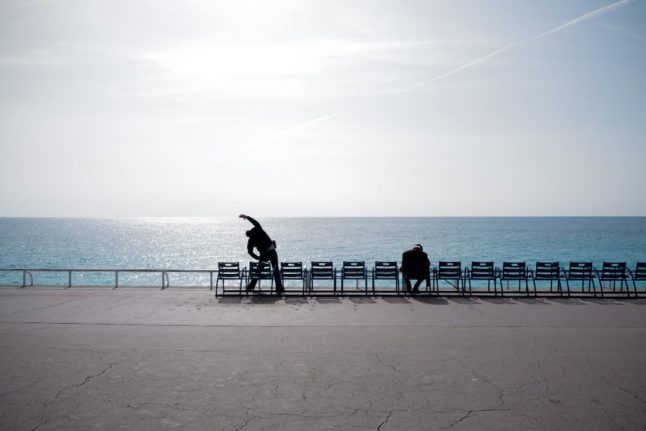One of the most common reasons people give for moving to France is the quality of life here, and many people are prepared to take a salary cut or reduce their working hours in order to achieve a better work/life balance – but how much do you actually need to live on?
Housing – €700 per month
The French Riviera undoubtedly has some very pricey areas (like this home that sold for €1 billion) but there are also affordable areas.
If you are looking to rent a one bedroom apartment – one that is at least 35m2, then you will likely spend about €700 per month in rent.
In Nice, the Riviera’s largest city, the average per metre square price for renters is €19. For buying property, the average per metre cost is €5,020.
Property taxes – If you are a tenant you probably won’t need to pay any property taxes as the householders’ tax taxe d’habitation is being phased out, but if you buy you will need to pay the property owners’ tax – taxe foncière. The TV licence – previously €138 per year per household – has been scrapped this year.
Transport – €40.80 per month
While in certain parts of the Riviera it might be worthwhile to have a vehicle, for the most part the coast is well-connected by trains and buses, so you do not necessarily need a car. Nice has a strong public transport network, with the monthly pass costing €40.80. The city is home to a TGV station, so it is in proximity to country-wide trains and routes.
Utilities – €110-€154 a month
Energy prices are set nationally in France and in August 2022, the electricity cost per kilowatt for those with a regulated rate with the national energy provider (EDF) was €0.1740 TTC.
If you heat your home with gas, but use an electric cooker, your average energy bill in France is about €81 for both gas and electricity. In contrast, if you heat your heating, hot water, and stove top are all electric, then your average bill is likely to be higher, around €125 per month.
As temperatures typically do not drop below 7C in the winter in Nice, you’re likely to save money on heating compared to northern France. The climate along the Riviera is usually mild most of the year – though summers are getting hotter. If you decide to install air conditioning for the summer months, naturally that will push your electricity bills up.
Groceries – €250 per month
For a single person living in Nice, you’re looking at about €250 per month for a panier (the national measure of the average grocery shop) at InterMarché Express according to Que Choisir. This is higher than the national average for a single person by €20.
Healthcare – €38 per month
Once you have lived in France for three months you are entitled to register in to public healthcare system – here’s how.
Once you are registered (and it can take a few months) the state reimburses the majority of your costs for medical appointments, prescriptions and treatments. There is also the option to purchase top-up insurance known as a mutuelle, which (in most cases) will ensure that 100 percent of your medical costs are reimbursed.
For a single person, the average cost of a mutuelle is €38 per month, and if you are an employee your employer must pay at least half of the monthly cost.
Childcare – €180-€400 per month (means tested)
Not applicable to everyone, of course, but if you have young children you may need to factor in childcare costs.
After the age of three, children are required to attend pre-school (maternelle). This is free, public and mandatory. However, until your child reaches the age of three, you may need to budget for childcare – usually either a nanny, childminder or a nursery.
For public nurseries, the prices are determined on the basis of income. Typically, if you earn between €2,000 and €3,000 per month, you will find yourself paying between €180 and €250 a month for full-time daycare at a crèche. If you earn between €2,000 and €4,000 you might the crèche will cost you between €250 and €400.
READ MORE: Family-centred society: What it’s really like being a parent in France
If your income is higher than €4,000 per month, then you may find yourself paying closer to €1,000 per month.
The prices are staggered because childcare through a crèche or nounou (childminder) is state subsidised,
Families in France also benefit from other state benefits. After your child is born, you may qualify for the “prestation d’accueil du jeune enfant (Paje)” which can be paid at the time of the birth (or adoption) of the child and until the child reaches the age of six, for families who demonstrate the financial need. CAF (Caisse d’Allocations Familiales de Paris) also offers assistance to low-income families with children.
For childcare during the summer, your child can take part in the colonies de vacances – which are an opportunity to go away from home to learn and participate in new activities. The price to send your child can be subsidised by CAF, based on income.
If you’re moving to France to work, you might notice that wages are lower than your home country, especially for Americans. You will, however, be covered by the minimum wage.
As of August 2022 the national minimum wage – known as the SMIC – in France is €11.07 per hour before taxes, which comes out to about €8.76 after taxes. A full-time worker on minimum wage would earn €1,329.05 per month, after taxes.
Total living costs – €1,150 per month
The Riviera is not one of France’s most affordable areas, but it is still cheaper than Paris and is affordable on the national minimum wage. Despite its glitzy image, the area does in fact have quite a lot of workers on minimum wage, particularly workers in the hospitality industry.
The above totals are of course of only guides, there are lots of variables including whether you own your own home and whether or not you need a car. You would need to factor in taxes, but if your income is low you will generally not pay income tax.
While there is quite a significant amount of government help available to low-income households, this isn’t always available to new arrivals and will involve you navigating the French social security system, which is not always easy for newcomers.
When we asked our readers who had moved to France, few had been motivated by money and the majority said that their overall quality of life was better in France.
READ MORE: ‘Our life is so much better here’ – Why do people move to France?



 Please whitelist us to continue reading.
Please whitelist us to continue reading.
Member comments